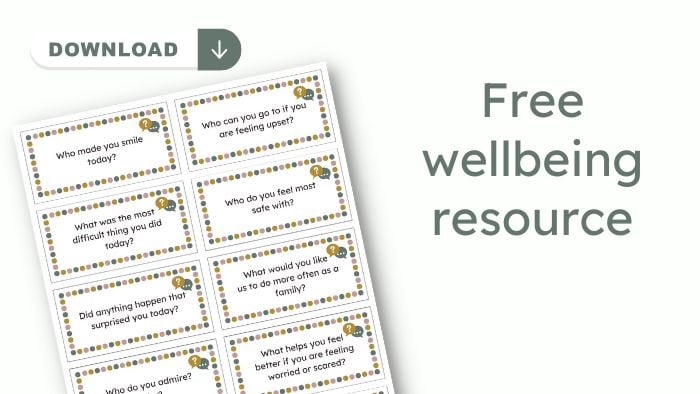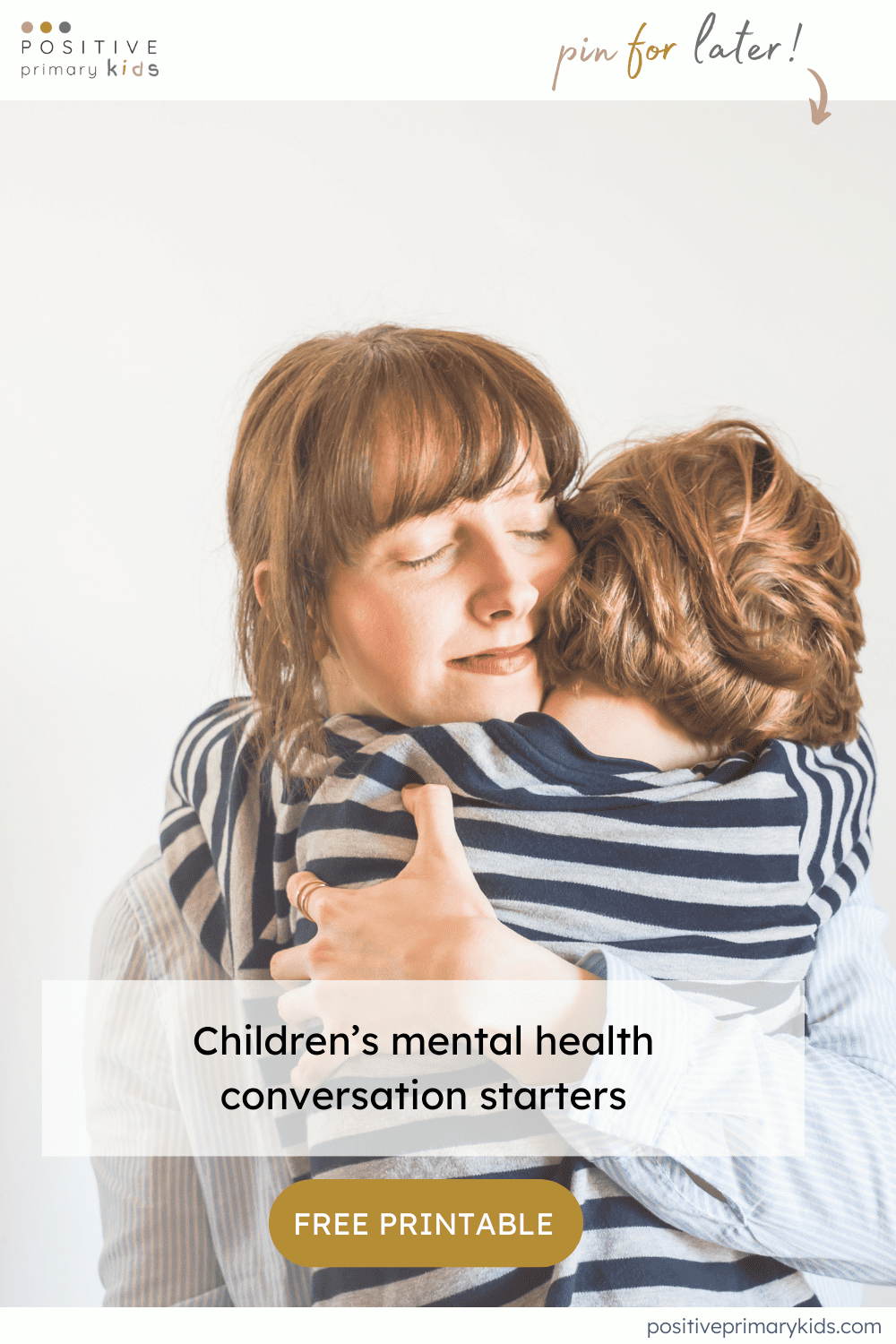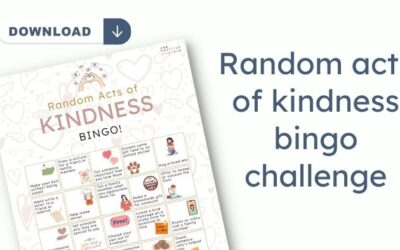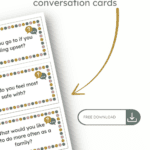It can be difficult to start meaningful conversations with kids about their feelings and give them sufficient space and time to talk. It can be even more difficult for children to communicate how they feel, which often leads to frustration and unhealthy coping mechanisms.
I’ve designed these free, printable mental health conversation starters to help you make talking about emotions easier.
Affiliate Disclosure: This post may contain affiliate links. This means that I may receive a small commision – at no cost to you – if you make a purchase through these links. Thank you for your support!
Supporting Children's Mental Health Week
This year’s theme, ‘My Voice Matters’, aims to empower children to communicate their views, feelings and experiences and to know that what matters to them is being heard.
Have you ever greeted your child at the end of a school day by enthusiastically asking, “How was your day?” only to get a one-word answer (or a grunt!) that ends the conversation and you are none the wiser? The question is too vague and responses tend to be automatic.
If you are stumped for alternative ways of finding out how your child is doing, you are not alone! I’ve gathered 10 different ways to help get the conversation flowing and created a free resource, which you can download, print and use instantly.
Benefits of using my mental health conversation starters
- Build your child’s confidence and self-esteem
- Boost their emotional vocabulary
- Provide opportunities for meaningful and insightful conversations
- Create a stronger parent-child bond
- Connection to what’s happening in their life.
- Improve listening and communication skills
- Develop greater empathy
- Normalise talking openly
- Dedicated time to talk and connect
- Build mutual trust and respect
- Make difficult conversations easier
- Solve problems – together
Tips for using this resource
Here are a few tips to keep in mind when you have mental health conversations with your child
- Listen actively – be attentive and responsive
- Listen without judgement
- Validate their experiences – their emotions are not ‘wrong’
- Notice their body language
- Let them know it’s ok to ask you questions too
Remember: it can be difficult – for children AND adults – to talk about thoughts, feelings and experiences. Children learn a lot from watching us, so try modelling responses. Tell them about challenging things from your day-to-day life and demonstrate that emotions are perfectly normal. This will help them develop the skills to cope with emotions healthily when they experience them.
To learn more about helping children express their emotions, take a look at this post – What is emotional literacy? Helping children understand big feelings.
Get your mental health conversation starters here!
I hope you enjoy this free resource. Let me know how you get on with them in the comments below.
- Place to Be – Children’s mental health charity
- Children’s Mental Health Week – information and resources to support this year’s theme of ‘My Voice Matters’








0 Comments